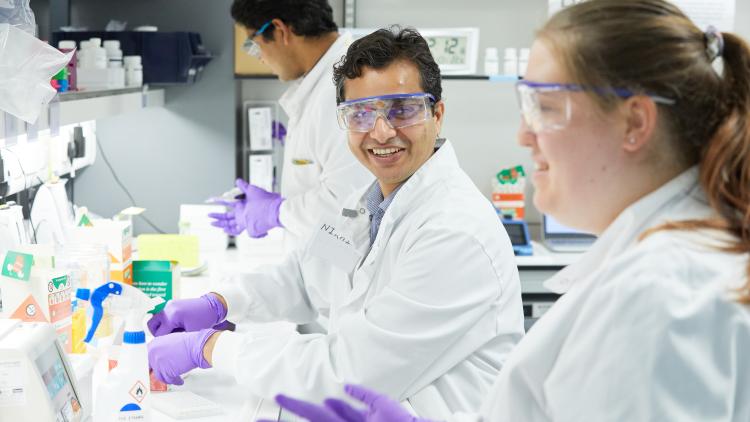About us
We take cutting-edge innovations from lab bench to bedside, translating them into effective treatments and diagnostics for cancer patients.
We work with researchers and industry to identify and advance novel approaches with the potential to deliver the next generation of cancer medicines.

including AstraZeneca, Astex, Merck KGaA and Ono Pharmaceutical
with EDDC, Karolinska Institutet and Oncode Institute
including Artios, iOnctura and OligoTune
with 10 into regulatory development and six into clinical trials to date
Therapeutic Innovation is Cancer Research UK's internal drug discovery engine, guided by a highly experienced international drug discovery board and leadership team, and is focused on building an innovative, high-impact and competitively resourced portfolio. We draw on the best academic research and partner commercially where this enables us to accelerate our projects and benefit cancer patients faster.
We are a 200-strong group of passionate and creative scientists. We have the expertise and capabilities to translate early concepts to patient benefit, encompassing deep cancer biology knowledge and extensive drug discovery experience.
We're looking for the right partnerships to accelerate the discovery of the next generation of cancer medicines.